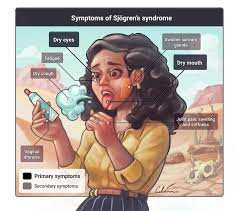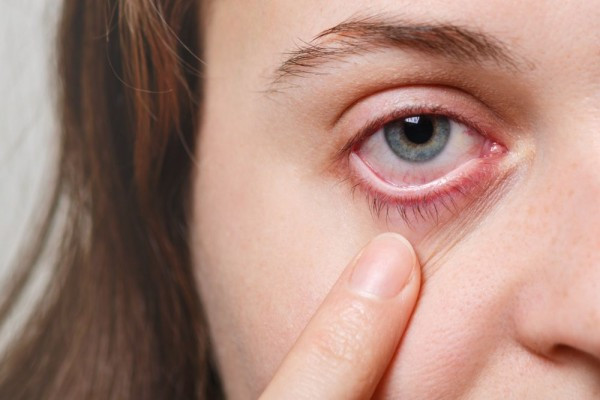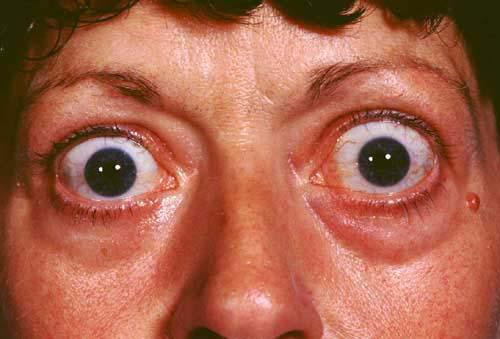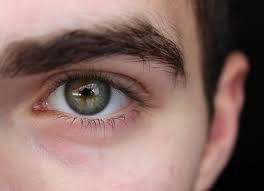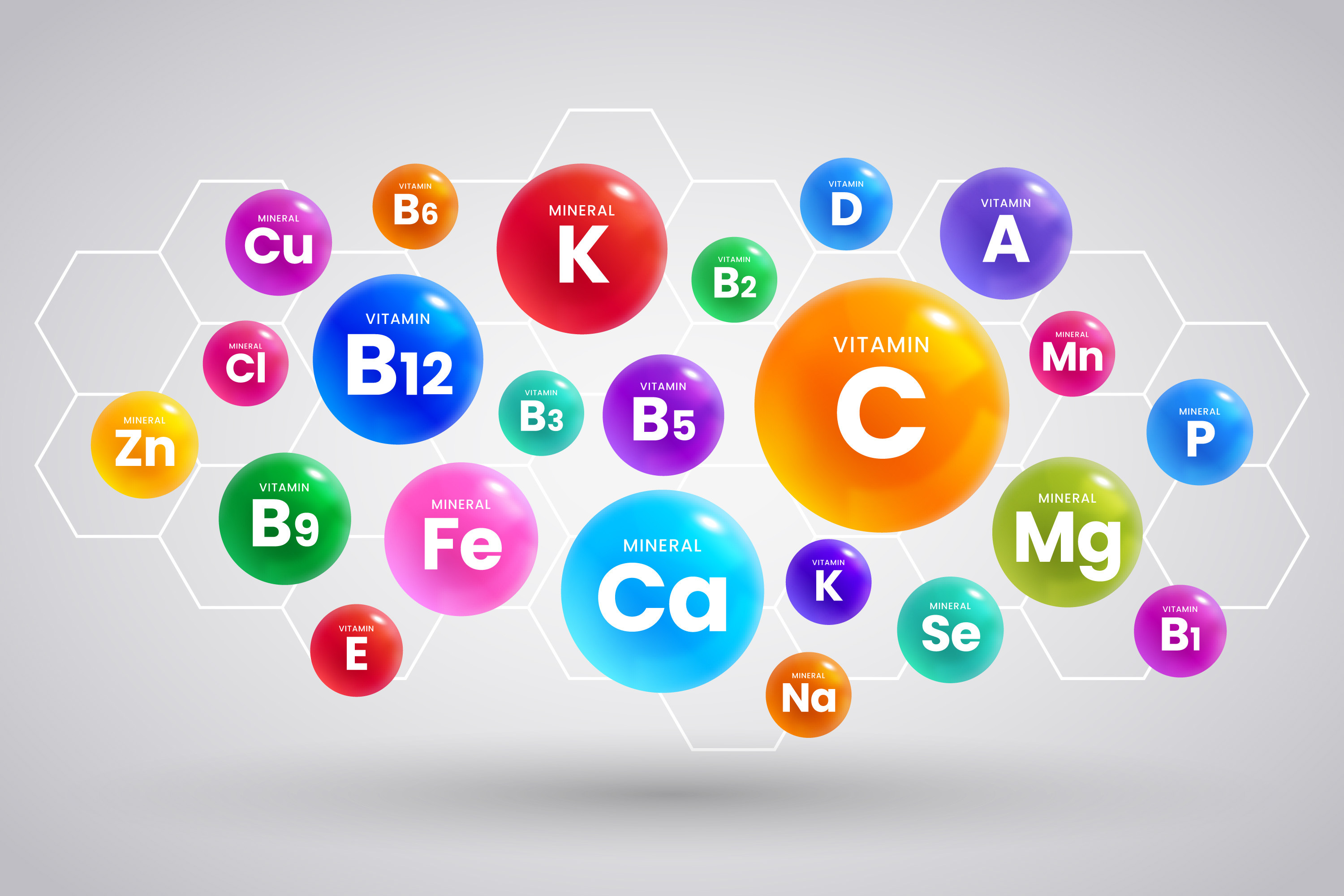Definition
Sjogren's syndrome is a disease characterized by the main complaints of dry eyes and dry mouth. This condition is often found in middle-aged individuals but can affect people of all ages.
Sjogren's syndrome is an autoimmune disease in which the immune system attacks healthy cells or tissues. In this case, the immune system targets the tear and salivary glands, disrupting the glands' ability to produce fluids.
There are two types of Sjogren's syndrome:
- Primary Sjogren's syndrome, which occurs without underlying diseases (idiopathic),
- Secondary Sjogren's syndrome occurs in individuals who already have other autoimmune diseases, happening concurrently with conditions such as rheumatoid arthritis, lupus, and psoriatic arthritis.
Causes
Experts have not identified the exact cause of Sjogren's syndrome. However, certain genes increase an individual's risk of developing this disease, and specific viral or bacterial infections can also contribute to its onset.
In Sjogren's syndrome, the immune system initially targets the glands that produce tears and saliva. However, damage can also occur in other parts of the body, including:
- Joints
- Thyroid glands
- Kidneys
- Liver
- Lungs
- Skin
- Nervous system
Risk factor
Several factors can increase the risk of someone experiencing Sjogren's syndrome, including:
- Age: Although Sjogren's syndrome can occur at any age, individuals over 40 years old have a higher risk of developing it.
- Gender: Women have a higher risk compared to men of developing Sjogren's syndrome.
- Rheumatic diseases: Individuals with Sjogren's syndrome often also suffer from other rheumatic diseases such as rheumatoid arthritis or lupus
Symptoms
Mucous membranes and the glands that produce fluids in the eyes and mouth are typically the first to be affected. This leads to two main symptoms:
- Dry eyes: red eyes accompanied by a sensation of burning, itching, or grittiness
- Dry mouth: dry mouth with a feeling like it's filled with cotton, causing difficulty in swallowing or speak
Some people with Sjogren's syndrome also experience one or more of the following symptoms:
- Joint pain, swelling, and stiffness
- Swelling of salivary glands, especially glands behind the jaw and in front of the ears
- Rash or dry skin
- Dry vagina
- Persistent or chronic dry cough
- Vision disturbances
- Prolonged fatigue
Diagnosis
Sjogren's syndrome can be challenging to diagnose because its signs and symptoms vary in each individual and can resemble other diseases. The side effects of certain medications can also mimic the signs and symptoms of Sjogren's syndrome.
Several tests can help rule out other conditions and confirm a diagnosis of Sjogren's syndrome.
Blood test
Doctors may recommend blood tests to examine:
- Levels of various blood cells
- The presence of antibodies often found in Sjogren's syndrome patients
- Signs of inflammation
- Indications of liver and kidney disorders
Eye examination
- Doctors can measure the dryness of your eyes with a test called the Schirmer tear test. A small filter paper is placed under your lower eyelid to measure tear production
- The doctor will also examine the surface of your eyes with a magnifying instrument called a slit lamp. The doctor may administer eye drops that can aid in assessing whether there is damage to the cornea due to the dryness effect
Radiology examinations
Specific radiological examinations can assess the function of salivary glands, including
- Sialography: this test measures how much saliva you produce using X-rays by injecting dye into the salivary glands
- Salivary scintigraphy: examination involves injecting a radioactive isotope into a vein and then observing how long it takes for the substance to reach the salivary glands
Biopsy
Doctors may perform a biopsy (obtaining a sample of tissue or cells) from the salivary glands or the inner part of your lip. This sample will be taken to the laboratory to examine signs of inflammation.
Management
Currently, there is no exact cure for Sjogren's syndrome, but therapies are provided to alleviate existing symptoms. The treatment for Sjogren's syndrome depends on the affected body parts.
Treatment for dry eyes
- Artificial tears: Over-the-counter eye drops medication to reduce inflammation in the tear glands and stimulate tear production
- Closure of tear ducts may be recommended on severe cases
Treatment for dry mouth
- Sugar-free gum to stimulate saliva production
- Medications such as pilocarpine and cevimeline to increase saliva production (prescription required)
- Dental care to manage the increased risk of cavities, infections, and dental damage
Treatment for joints or other organs
- Over-the-counter pain relievers like paracetamol or ibuprofen for joint pain
- Immunosuppressive drugs suppress the immune system to prevent organ damage
- Steroids to alleviate inflammation in joints, skin, or other organs
Complications
Complications of Sjogren's syndrome most commonly involve the eyes and mouth:
- Cavities: A dry mouth makes you more susceptible to cavities because saliva typically protects teeth from bacteria that might cause cavity
- Fungal infections: individuals with Sjogren's syndrome are more prone to oral fungal infections (oral candidiasis)
Other complications may include:
- Vision problems: dry eyes can lead to light sensitivity, blurry vision, and damage to the cornea
Less common complications include:
- Inflammation can lead to lung infections, bronchial infections, and other respiratory issues. Additionally, inflammation may affect kidney function, leading to hepatitis or liver cirrhosis
- Lymphoma: a small percentage of individuals with Sjogren's syndrome may develop lymphoma, a type of lymph node cancer.
- Peripheral neuropathy: numbness, tingling, and burning sensations in the hands and feet (peripheral neuropathy).
Prevention
The exact cause of Sjogren's syndrome or other autoimmune diseases is unknown. Therefore, there is no specific way to prevent these conditions.
However, to prevent the worsening of symptoms, you can take several actions, such as:
- Using a humidifier, increasing humidity indoors, and reducing exposure to cold winds can help keep your eyes and mouth from drying excessively.
- Wear protective glasses when you go outside
- Avoid smoking. Smoking can irritate and worsen dry mouth conditions
- Ensure you stay well-hydrated by increasing your fluid intake
- Use nasal sprays to help moisturize and relieve the nasal passages, making it more comfortable to breathe through the nose.
When to see a doctor?
Contact a doctor if you experience symptoms of Sjogren’s syndrome, as described above. Many things can cause similar symptoms. A doctor can check for more common causes, such as eyelid infections, diabetes, or medication side effects.
- dr Nadia Opmalina
Sjogren's syndrome (2022) Mayo Clinic. Mayo Foundation for Medical Education and Research. Available at: https://www.mayoclinic.org/diseases-conditions/sjogrens-syndrome/symptoms-causes/syc-20353216 (Accessed: April 17, 2023).
(2020) NHS choices. NHS. Available at: https://www.nhs.uk/conditions/sjogrens-syndrome/ (Accessed: April 17, 2023).
Sjögren's syndrome: Causes, symptoms, diagnosis & treatments (2020) Cleveland Clinic. Available at: https://my.clevelandclinic.org/health/diseases/4929-sjogrens-syndrome#prevention (Accessed: April 17, 2023).
Carsons SE, Patel BC. Sjogren Syndrome. [Updated 2022 Aug 1]. In: StatPearls [Internet]. Treasure Island (FL): StatPearls Publishing; 2023 Jan-. Available from: https://www.ncbi.nlm.nih.gov/books/NBK431049/


